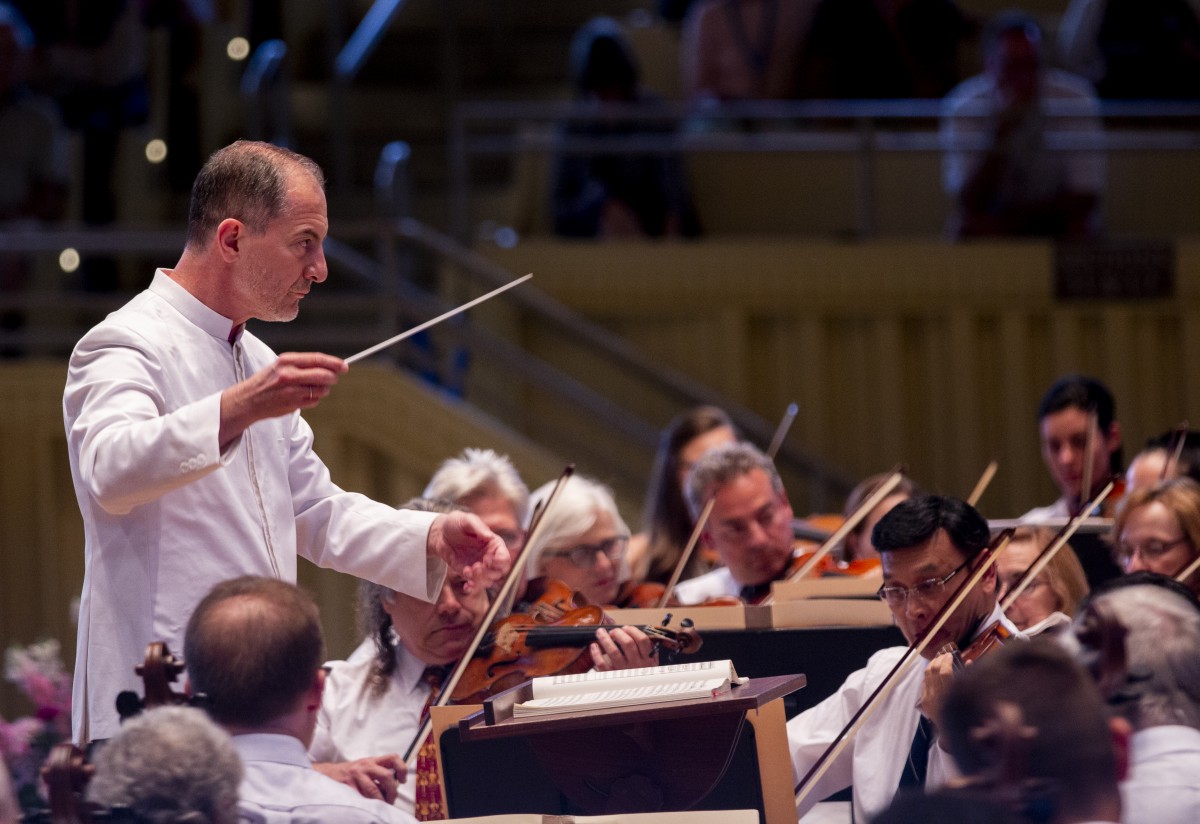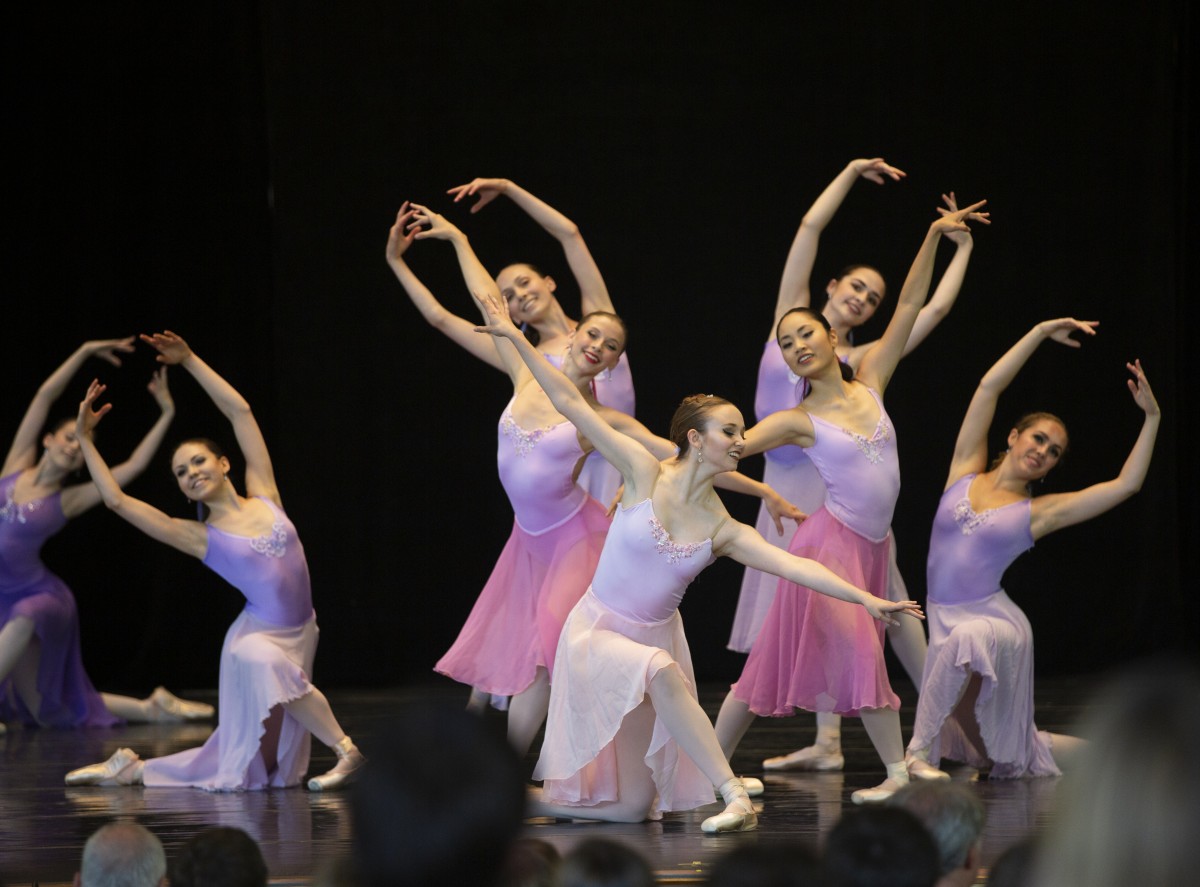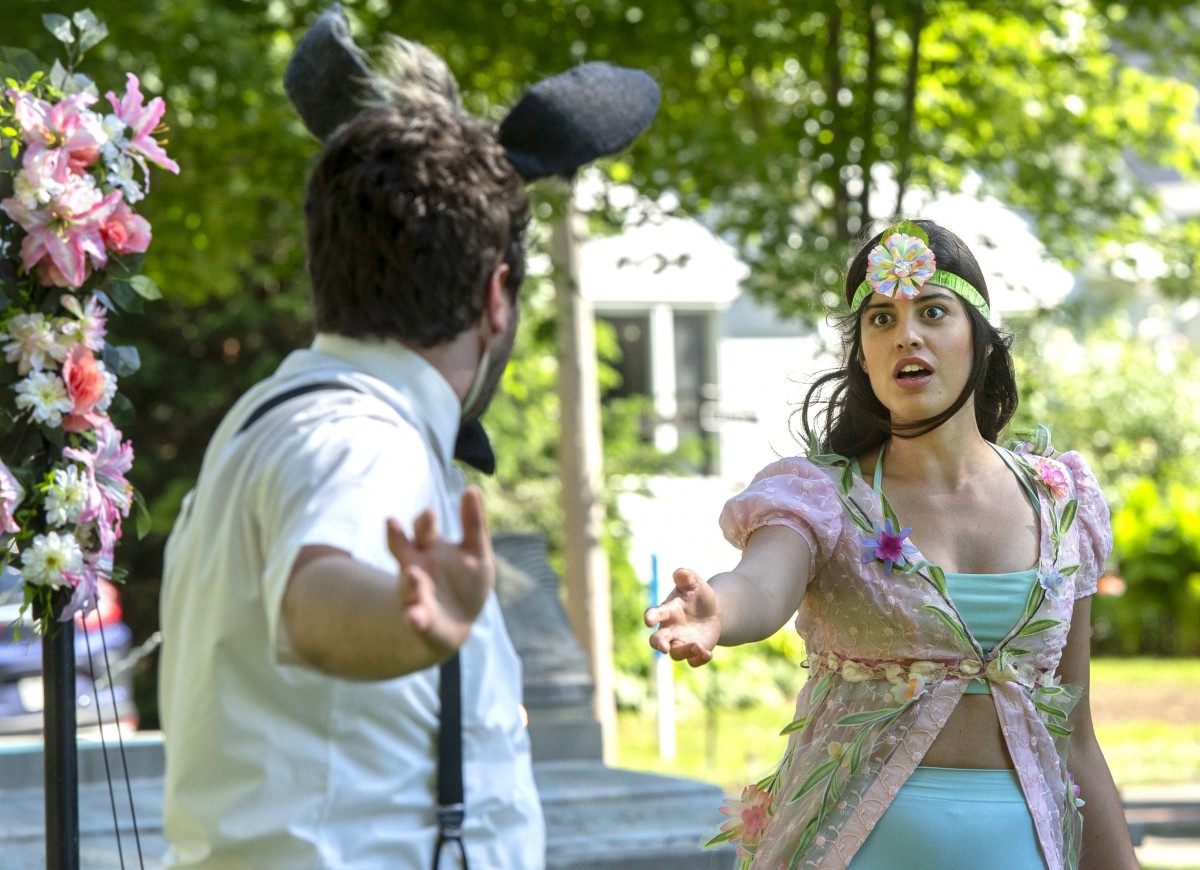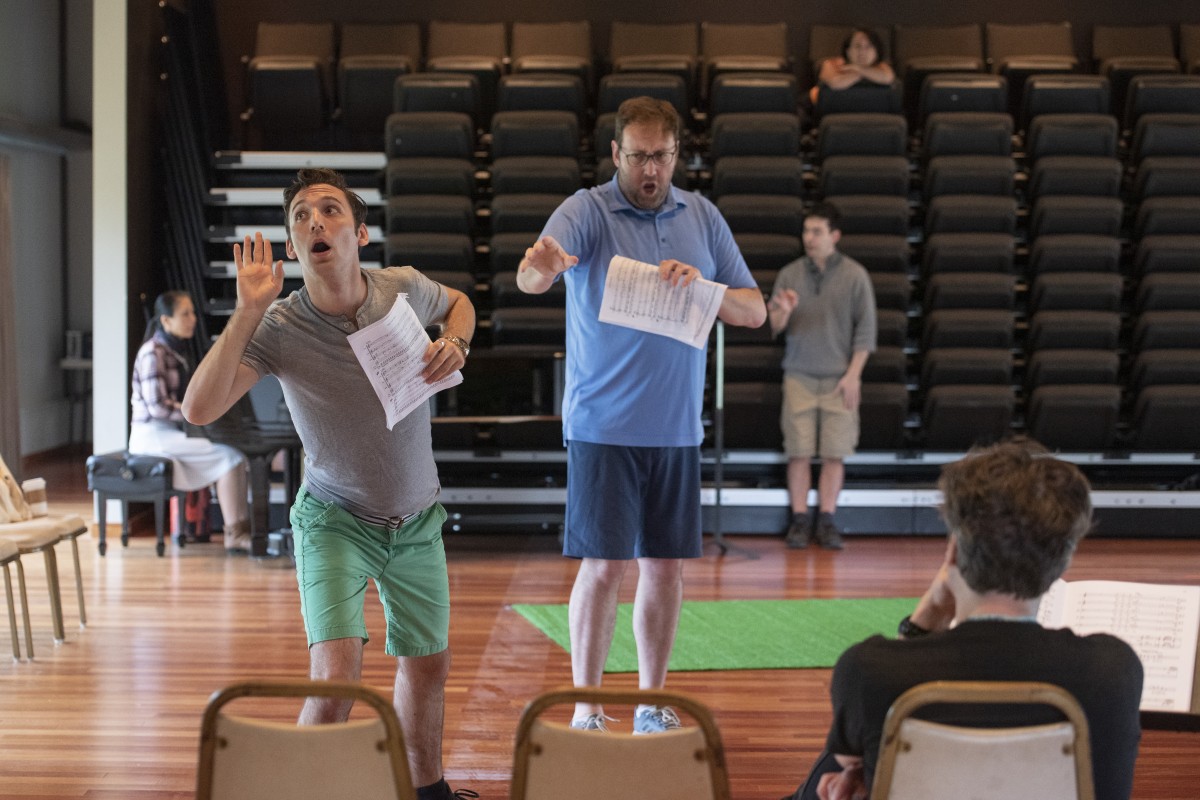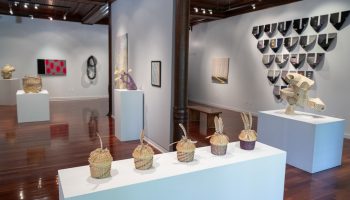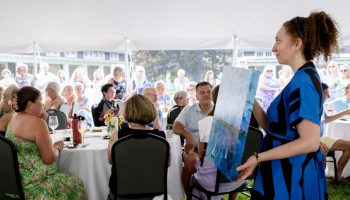Shakespeare is in the air at Chautauqua this season, and as the halfway point of the summer approaches, the School of Music Voice Program will put on four productions of Benjamin Britten’s three-act operatic version of A Midsummer Night’s Dream. The show opens at 7 p.m. Tuesday, July 16 in McKnight Hall.
The voice students are not the only ones to tell the story this season — alongside Chautauqua Theater Company’s production of Shakespeare’s original play and the Inter-Arts Collaboration performance that also hits the stage tonight, the Voice Program’s production is one of three versions of A Midsummer Night’s Dream to be performed on the grounds. This version, however, is unique because it’s a full opera.
Besides cutting the first act of the original play and making some minor additions to account for this change, Britten’s version is “religiously faithful” to Shakespeare’s masterpiece, said Stage Director John Giampietro. The removal of the first act does a service to the music; instead of opening with an act set in the city of Athens, the opera begins in the forest, with a mystical mood.
“Right off the bat, Britten starts us out with this mysterious, magical music, and we’re just plunged into the world,” Giampietro said. “If he started in Athens in the first act, the texture of the music would have been different. So this way, he just throws (us) into the middle of this magical world, which is great.”
Britten kept the language of the original text and even preserved much of the rhythm and meter of Shakespeare’s poetic intent in his melodies. However, those who are familiar with the original work will find something new in this opera — even Giampietro, who has directed the original play five times.
“I knew Shakespeare’s rhythms so well; they were just a part of me,” Giampietro said. “Then when I was studying the opera I almost had to unlearn the Shakespeare to get the Britten into my body and my heart.”
The music for the opera was originally written for a full orchestra, but Music Director Julias Abrahams managed to reduce the score for an ensemble of seven: two flutes, two horns, one trumpet, one trombone and one harp. This ensemble is composed entirely of members of the Music School Festival Orchestra.
The opera will have four showings this week, and will make use of a rotating cast — meaning that the major characters of Oberon and Titania, the fairy king and queen, as well as the four lovers Lysander, Demetrius, Helena and Hermia, have multiple people cast and the person playing each character will change each show.
“It has made rehearsing this an adventure beyond belief,” Giampietro said. “Because basically, we have to do everything three times.”
Tonight’s opening performance will feature countertenor Sam Siegel as Oberon, soprano Meredith Wohlgemuth as Titania, tenor Santiago Pizarro as Lysander, bass baritone Luke Sutliff as Demetrius, soprano Mackenzie Jacquemin as Helena and mezzo-soprano Sophia Maekawa as Hermia.
Additionally, School of Music alumnus, guest faculty and award-winning operatic bass Matthew Rose will play the part of Bottom — a particularly difficult role — in every show.
“He’s done the role,” said Donna Gill, head voice coach and coordinator of voice scheduling. “He’s sung a lot in Britain, he sings at the Met, he’s a very accomplished professional. … (It’s) good for the students to be working alongside a professional like that.”
The casts have been rehearsing for about three weeks — an incredibly short amount of time considering that professional operas might rehearse for four to six weeks with only a single cast, and that Britten’s music is sophisticated and complex. Additionally, it’s a long opera — about three hours in length, according to Giampietro.
“(The students) are amazing,” Giampietro said. “They’re rising to the challenge of the music and the piece. They’re collaborators in it — we’re building this thing together and they have something to say about the piece. And they’re so supportive of each (other), even the three who are sharing a role.”
Additional performances of the opera are at 7 p.m. Wednesday, Thursday and Friday in McKnight Hall. Seating, which will be partially outdoors, is limited to the first 100 attendees.
“They’ll be brilliant,” Giampietro said. “I’m just eager to see them succeed and see them realize what they’ve done — what a challenge it was, and how they met it.”


